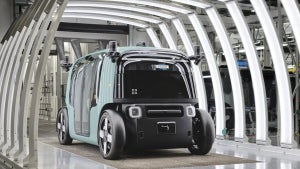News
Wi-Fi Pineapple: What it is and how to protect yourself from cyberattacks
Wi-Fi Pineapple mimics trusted networks to steal user data. Learn how to protect yourself from these cyberattacks with simple but essential precautions.

- May 9, 2025
- Updated: July 1, 2025 at 9:41 PM

In today’s hyperconnected world, free public Wi-Fi has become a daily habit, but behind some of those networks may be a serious threat: Wi-Fi Pineapple. This small, seemingly harmless device can simulate trusted networks and intercept sensitive data from unsuspecting users. Originally created for cybersecurity testing, it’s now also a tool frequently used by cybercriminals.
How Wi-Fi Pineapple works
Wi-Fi Pineapple tricks devices into connecting to fake networks by mimicking trusted Wi-Fi signals. If your phone or laptop has previously connected to “Free_Airport_WiFi” or “Café_WiFi,” this tool can replicate those names and lure you in. Once connected, the attacker can launch Man-in-the-middle attacks, accessing your emails, logins, and even banking data without you ever noticing the intrusion.
Cybersecurity professionals initially used Wi-Fi Pineapple to audit networks, ensuring they were secure. However, its misuse by attackers has turned it into a powerful weapon for spying and data theft, particularly in busy public areas like airports or cafes.
How to stay safe from fake Wi-Fi networks
There are simple yet effective ways to defend yourself from these digital traps. Using a virtual private network (VPN) is one of the best strategies. A VPN encrypts your connection, making it much harder for hackers to view your data, even on compromised networks.
Another essential habit is disabling your device’s Wi-Fi when not in use. Many phones automatically reconnect to known networks, and Wi-Fi Pineapple can take advantage of this feature. Turning off Wi-Fi in public spaces significantly reduces your risk.
As cyber threats become more sophisticated, staying informed and cautious is key. The price of convenience should never be your digital safety.
Latest from Agencias
- The attack on the Npm registry exposes confidential credentials of developers
- Will robotaxis make the progress that is expected in the coming years?
- Sega is not afraid of Nintendo and to prove it has launched Sonic Racing: CrossWorlds
- The game that has had legal issues with Nintendo will be released next year
You may also like
 News
NewsThe director of Phantom Blade Zero believes that Chinese video games have improved a lot, but most are still at a very basic level
Read more
 News
NewsThe attack on the Npm registry exposes confidential credentials of developers
Read more
 News
NewsThe creator of Vampire Survivors believes that the video game audience should be treated more fairly
Read more
 News
NewsThe director of the game hidden of the year claims that the release of Silksong was "a bit cruel"
Read more
 News
NewsAdobe leads the AI revolution in design and editing: 5 amazing new features that will make your life easier
Read more
 News
NewsWill robotaxis make the progress that is expected in the coming years?
Read more